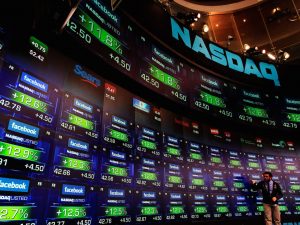 If you are interested in working in the foreign exchange market in Nigeria, there are a few things you should know. The market is decentralized and open to anyone. This means that you can trade in currencies at any time of day or night. You can trade any currency pair you want and there is no geographic limit. But there is a learning curve. This article will teach you what you need to know to work in the foreign exchange market in Nigeria.
If you are interested in working in the foreign exchange market in Nigeria, there are a few things you should know. The market is decentralized and open to anyone. This means that you can trade in currencies at any time of day or night. You can trade any currency pair you want and there is no geographic limit. But there is a learning curve. This article will teach you what you need to know to work in the foreign exchange market in Nigeria.
The Nigerian foreign exchange market is governed by the Foreign Exchange (Monitoring and Miscellaneous Provisions) Act Cap F34 LFN 2004. It has three main segments: the CBN window, interbank (Authorised Dealers and Authorised Buyers), and Bureau de Change. However, there is a parallel market that does not have legal backing, and it’s made up of unlicensed players who buy and sell foreign currencies without the proper legal documentation.
If you’re new to forex trading, you should do your research and learn the fundamentals before attempting to invest. Start by using a demo account. Learn about the different types of currency trading. Once you feel comfortable trading, open an account with a broker. You can fund the account using a credit card, debit card, or check. Most brokers offer their own trading software. After you download the software on your computer, you’ll use the graphical user interface to make your decisions.
CMTrading is an online foreign exchange broker in Nigeria. They offer advanced trading technology and are ideal for Nigerian traders. CMTrading offers both MT4 and Sirix Web Trader, as well as a social trading partner known as CopyKat. These platforms offer a wealth of resources for beginners and experienced traders alike. And if you’re new to forex trading in Nigeria, you can read these articles and gain more knowledge on the foreign exchange market.
Changing international trade patterns, institutional changes in the economy, and structural shifts in production have shaped the evolution of the foreign exchange market in Nigeria. Before 1958, the private sector earned most foreign exchange in Nigeria and held it in commercial banks. The bulk of foreign exchange receipts came from agricultural exports. Furthermore, the Nigerian pound was pegged to the British pound sterling at par. This made it easy for the currency to convert to another currency. Consequently, the development of an active foreign exchange market in Nigeria was delayed.
